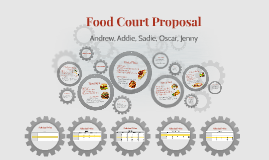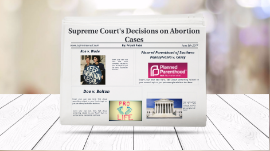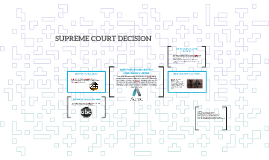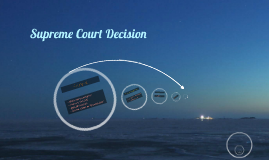Supreme Court Decision
Transcript: www.supremecourt.com June 9th 2017 By: Priyali Patel Supreme Court's Decisions on Abortion Cases Date: Argued: December 13, 1971 Decided: January 22, 1973 Background: In the early 1970s multiple states banned or restricted women from getting abortion. Norma McCorvey commonly known as "Jane Roe" to secure her identity at the time of this case seeked to get an abortion. She wasn't able to get abortion because Henry Wade, at the time District Attorney of Dallas County enforced a law that prohibited women to receive abortion unless it was to save the life of the mother. At this time in history, pro-life advocates believed that abortion can harm pregnant women. Date/Background Roe v. Wade Insert your own text here. Talk about something related to your first topic or just put some placeholder text here. Circumstances/Controversy Should women be allowed to receive abortion, or should they not be allowed to make a big decision for themselves, if they wished to not have the baby? Prior to Roe v. Wade women weren't either allowed to have abortion unless it was to save mothers life. A majority of laws didn't allow the women to make this choice, and after feminist movements challegned womens's right to make such decisions. Circumstances/Controversy At the end of the hearing, the Supreme court decided with a 7-2 decision, which allowed the women legal right to have an abortion because it violated women's constitutional right to privacy. This was heavily debated under the Fourteenth amendment, to protect an individual's privacy. Court's Decision Court's Decision Personal Judgement I think the pregnant woman has full rights over to decide weather or not she chooses to have the baby. This is because the woman suffers through a lot during pregnancy and she should be given complete control over the decision if she would want to suffer the pain. Therefore I agree with Supreme Court's decsion, which states that it is woman's constitutional right to privacy. The court's decision did split the nation in half but gave woman control to their body, and a chance for them to have an abortion if wished. Personal Judgement After the Supreme Court invalidated the Texas law by a 7-2 vote, opposition emerged. The Roman Catholic Church criticized abortion as a form of infanticide. Many fundamentalist Protestant minsters joined the outcry. The National Right to Life Committee formed with the good of reversing Roe v. Wade. Social Impact Social Impact Date Argued: April 22, 1992 Decided: June 29, 1992 Background A Pennsylvania legislature amended its abortion control law in 1988 and 1989. Among the new provisions, the law required informed consent and a 24 hour waiting period prior to the procedure. A minor seeking an abortion required the consent of one parent (the law allows for a judicial bypass procedure). A married woman seeking an abortion had to indicate that she notified her husband of her intention to abort. These provisions were challenged by several abortion clinics and physicians. A federal appeals court upheld all the provisions except for the husband notification requirement. Background Planned Parenthood of Southern Pennsylvania v. Casey Insert your own text here. Talk about something related to your second topic or just put some placeholder text here. Circumstances/Controversy Can a state require women who want an abortion to obtain informed consent, wait 24 hours, and if minors, obtain parental consent, without violating their right to abortions as guaranteed by Roe v. Wade? Many states such as Pennsylvania openly defied Roe by passing new laws that prohibited abortions, which triggered Planned Parenthood and caused an upheaval. The restrictions prevented Planned Parenthood from helping women get an abortion. The requirements the state posed were far to difficult to pass and appeared unnecessary. Circumstances/Controversy In 1992, Supreme Court released a decision ruling that said Roe v. Wade was affirmed but part of Pennsylvania law was also constitutional. Based off of Roe v. Wade, court ruled that a woman’s decision to get an abortion implicates “liberty interests” and “privacy interests” that the Constitution's Due Process Clause protects. Court also ruled that state could not ban abortions before the “viability” point and that states can not ban abortions that help save a life of the mother. Finally the court also proclaimed that any regulation that imposes an obstacle for a woman from obtaining a legal abortion, is an “undue burden” that violates the woman’s constitutional right to an abortion. The decision was a 5-4 majority Court's Decision Court's Decision I think that it is the woman's right more than the man's becuase it is the woman that has to go through the pregnancy and they should have the right to decide what they want to do with their body. Requiring a consent from husband puts a limit on the woman's right, especially since some women might be scared of their spouses. Therefore I agree with the Supreme Court's

















